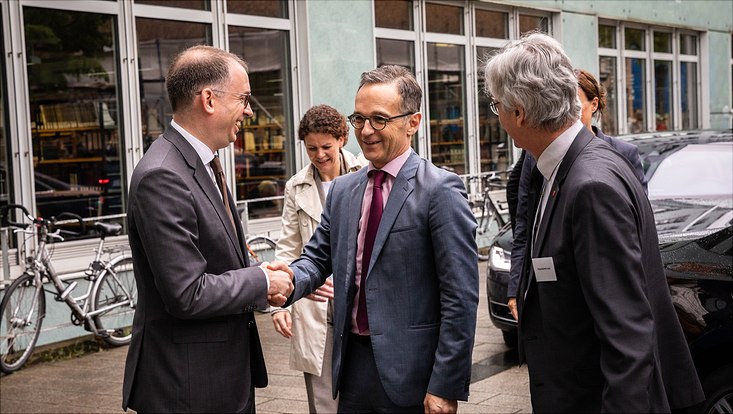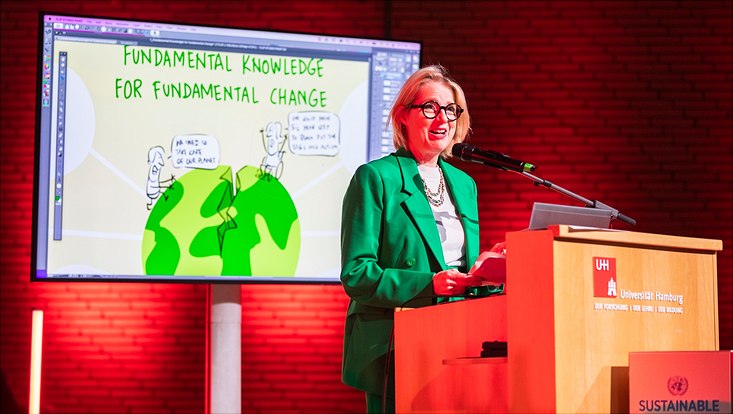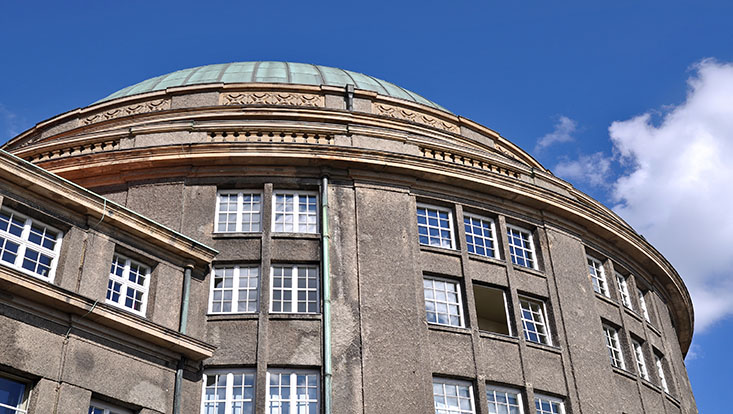Minister of Foreign Affairs Heiko Maas catches up on the latest climate research in Hamburg
21 May 2019, by Online-Dienste
Expertise like that produced at Universität Hamburg’s Cluster of Excellence “Climate, Climatic Change, and Society (CLICCS)” is essential in order to convince skeptics at the international political level of the reality of climate change, underscored Minister of Foreign Affairs Heiko Maas during his visit.
Prior to a meeting with ministers from the Baltic States in Hamburg, Minister of Foreign Affairs Heiko Maas found time to meet with climate researchers from Universität Hamburg and the Max Planck Institute for Meteorology. In the course of a round table discussion, leading experts on international climate research brought him up to speed on how their cluster works: with regard to the current state of research, he spoke with CLICCS Speaker Prof. Detlef Stammer, Director of Universität Hamburg’s Center for Earth System Research and Sustainability (CEN) and Chair of the World Climate Research Programme (WCRP); and with CLICCS Co-Speaker Prof. Jochem Marotzke, Director of the Max Planck Institute for Meteorology and one of the twelve lead authors of the latest Assessment Report.
Minister Maas also fielded questions posed by doctoral students from the graduate school SICSS (School of Integrated Climate System Sciences), affiliated with CLICCS, before touring the climate supercomputer MISTRAL at the German Climate Computing Center (DKRZ). In service since 2015, MISTRAL supports high-resolution climate simulations, reducing the uncertainties in climate projections.
Maas plans to put climate change on the UN Security Council’s agenda
As Heiko Maas said during his first address to the UN Security Council at the beginning of the year, climate change is one of the central issues that Germany wants to pursue at the UNSC. Yet the conditions for doing so on the international stage have since worsened, as Maas explained during his visit to Hamburg: due e.g. to the USA’s withdrawal from the Paris Agreement, the generally complex and tense state of affairs around the globe, and a growing tendency to put stock in simple “truths” – or even in conspiracy theories. The latter aspect is one he can only counteract on the political stage if he knows the concrete impacts of climate change; for example, how it is destroying livelihoods in specific regions or leading to mass migrations.
Investigating and forecasting the regional effects of climate change are among the most important goals of the Cluster of Excellence for climate research at Universität Hamburg, as CLICCS Speaker Prof. Detlef Stammer assured Minister Maas: CLICCS is exploring the scientific basis of climate change, as well as the interactions between the climate and societies, which react to climate changes and, in the process, affect the climate. According to Stammer, the overarching goal is to identify courses of action and adaptation scenarios for various cultures and corners of the globe.
Human beings are partly to blame for climate change
In turn, CLICCS Co-Speaker Jochem Marotzke explained that, despite advanced computational models, we would never have 100% reliable information on the future development of the climate: certain aspects of the climate system display chaotic behavior, which makes them unpredictable. When asked by the Minister if he, as a scientist, found this fact frustrating, Marotzke answered in the negative. As he explained, it is precisely by identifying these unavoidable uncertainties that those aspects that are undeniable become all the clearer: that human beings are partly to blame for climate change, and the consequences of our actions.
Lastly, Prof. Amrita Narlikar, President of the German Institute of Global and Area Studies (GIGA), stressed the importance of researchers sharing their knowledge in a way the public can understand. “It’s not enough to keep saying that it’s complicated,” said the Professor of Political Science and International Relations.








